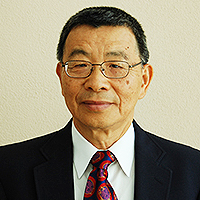Publish with Us
Mathematics & Physics Group
International Journal of Physics Research and Applications- ISSN:2766-2748 IJPRA
Chemistry Group
Biology Group
Annals of Proteomics and Bioinformatics- ISSN:2640-2831 APB
Archives of Biotechnology and Biomedicine- ISSN:2639-6777 ABB
Insights in Biology and Medicine- ISSN:2639-6769 IBM
Journal of Forensic Science and Research- ISSN:2575-0186 JFSR
Journal of Plant Science and Phytopathology- ISSN:2575-0135 JPSP
Pharma Group
Engineering Group
Clinical Group
Medical Group
sports medicine
The real-time information provision problem in assessing rehabilitation needs among athletes with overtraining syndrome
- Panagiotis Katrakazas
Published on: 12th August, 2022
Search by University/Institution
Enter your University/Institution to find colleagues at HSPI.
Ensuring author's satisfaction with
- Friendly and hassle-free publication process
- Less production time of articles
- Constructive peer-review
- Enhancing journal reputation
- Regular feedback system
- Quick response to authors' queries
Most Viewed Keywords
Search Articles by Country
Get all latest articles in all Heighten Science Publications Inc journals by country.
Testmonials
![]()
You are such a nice person. Your journal co-operation is very appreciable and motivational.
Archna Dhasmana
![]()
Your service is excellent. Processing and editing were very fast. I hope to publish more of my works in your journal.
Ausraful Islam
![]()
Your journal co-operation is very appreciable and motivational. I am really thankful to your journal and team members for the motivation and collaboration to publish my work.
Archna Dhasmana
![]()
My candid opinion is that the service you render is second to none. My favourite part is the prompt response to issue, really i value that.
Abiodun Akanbi Adeogun
![]()
I, Muhammad Sarwar Khan, am serving as Editor on Archives of Biotechnology and Biomedicine (ABB). I submitted an editorial titled, 'Edible vaccines to combat Infectious Bursal Disease of poultry' for ...
Muhammad Sarwar Khan
![]()
We really appreciate and thanks the full waiver you provide for our article. We happy to publish our paper in your journal. Thank you very much for your good support and services.
Ali Abusafia
![]()
I would like to thank JPRA for taking this decision. I understand the effort it represents for you. I'm truly happy to have the paper published in JPRA. And I'll certainly consider JPRA for my next pu...
Emmanuel BUSATO
![]()
The Clinical Journal of Obstetrics and Gynecology is an open access journal focused on scientific knowledge publication with emphasis laid on the fields of Gynecology and Obstetrics. Their services to...
Carole Assontsa
![]()
Publishing an article is a long process, but working with your publication department made things go smoothly, even though the process took exactly 5 months from the time of submitting the article til...
Anas Diab
![]()
Archives of Vascular Medicine is one of the top class journal for vascular medicine with highly interesting topics. You did a professional and great Job!
Elias Noory
HSPI: We're glad you're here. Please click "create a new Query" if you are a new visitor to our website and need further information from us.
If you are already a member of our network and need to keep track of any developments regarding a question you have already submitted, click "take me to my Query."




